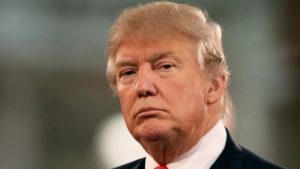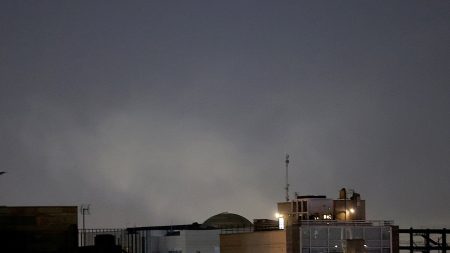Israel’s Former Spy Chief Reveals Details of Joint U.S.-Israel Operation Against Iran
Yossi Cohen, the former director of Israel’s intelligence agency Mossad, has confirmed that a coordinated operation between the United States and Israel successfully “obliterated” Iran’s nuclear sites, effectively halting its uranium enrichment program. Speaking at a conference at the Museum of Jewish Heritage in New York City, Cohen provided rare insights into the covert operation and issued a stark warning that Israel “can come again” if Tehran attempts to revive its nuclear ambitions. The revelation comes as a significant acknowledgment of what many security experts have long suspected was a joint effort to disrupt Iran’s nuclear capabilities. “For many years, everyone knew that Iran was our premier client — and my personal client,” Cohen reflected, referring to his time as a Mossad operative. He described how Iran had become the central focus of Israel’s intelligence community due to the existential threat its nuclear program posed. The former spy chief praised the Trump administration for its discreet coordination with Israeli forces, which enabled the successful operation that not only targeted nuclear facilities but also dismantled Iran’s air defense systems and Revolutionary Guard sites.
Cohen’s revelations shed light on a turning point in the long-standing tensions between Iran and Israel, highlighting how intelligence operations have fundamentally altered the security landscape of the Middle East. In his newly released book, “The Sword of Freedom,” Cohen recounts warning President Barack Obama in 2015 that the Iran nuclear deal was dangerous, only to be told, “Yossi, you are so wrong.” This conversation contrasted sharply with his later interactions with President Trump, who reportedly responded, “You’re so right. It’s the worst deal ever.” A crucial moment in this saga occurred on January 31, 2018, when Cohen supervised a daring Mossad operation in Tehran that saw a 25-member squad infiltrate the Iranian capital during a snowy night. “In the Mossad, we love it when the weather is extreme — when everyone else stays indoors,” Cohen remarked with a smile. This high-stakes mission resulted in the theft of 55,000 pages of classified documents and 183 compact discs that revealed Iran had secretly continued its nuclear weapons program while negotiating with world powers, information that ultimately influenced the U.S. decision to withdraw from the nuclear deal.
The former intelligence chief also expressed optimism about recent diplomatic developments, particularly regarding the hostage deal brokered by the Trump administration. “I can’t thank them enough, together with our allies in the Middle East,” he said, noting that all living hostages have been freed from Gaza, with hopes that the remaining bodies would be returned soon as Hamas had committed. Cohen suggested that the end of the Gaza conflict could mark the beginning of a new diplomatic era for the region. “From now on, we will see a better Middle East when this war is practically over,” he stated, envisioning that the “reconstruction of our relationships in the region will start to resume.” This perspective offers a hopeful counterpoint to the devastating conflict that has dominated headlines and affected countless lives in the region.
Looking to the future, Cohen predicted that renewed normalization efforts would extend beyond the Abraham Accords, which he helped establish during his tenure as Mossad chief. “Not only will the Saudis be in line,” he projected, “I know there are some rumors about Indonesia, I cherish that, of course, and I’m expecting other countries to come and sign peace treaties with the State of Israel.” He highlighted the upcoming visit of Saudi Crown Prince Mohammed bin Salman to Washington as “an important visit not only for him, but for us in the region.” Cohen credited the current American administration and its team, including figures like Steve Witkoff, Jared Kushner, and Marco Rubio, for fostering an atmosphere conducive to peace-building. His comments reflect a strategic vision for Israel that balances security concerns with diplomatic outreach, suggesting that the country’s intelligence community has always viewed these elements as interconnected.
Addressing the internal politics of Iran, Cohen expressed his belief that the overthrow of the Iranian regime is possible, though he acknowledged it might take years to materialize. “The Iranian people suffer under a cruel regime — anyone who dares to protest is hanged or shot,” he observed, “but I believe the time has come, and if the world supports it, it will happen.” This sentiment was echoed by Shurat HaDin President Nitsana Darshan-Leitner, who warned of ongoing political and legal threats facing Israel despite military successes. “The war is not yet over,” she cautioned, pointing to “political threats to establish a Palestinian state alongside Israel, and the aggressiveness of the International Criminal Court” as factors driving an “unprecedented rise in anti-Israel sentiment and antisemitism.” Her comments underscore the complex challenges that remain even as Israel achieves significant security objectives.
When questioned about his own political ambitions, particularly in light of Prime Minister Benjamin Netanyahu’s 2018 hint that Cohen could one day be his successor, the former Mossad chief maintained a measured stance. “I’m not going into politics right now,” he stated, “There’s a long, long way to go before I enter politics. I think the Israeli situation today is relatively stable, and nobody is going anywhere.” While he doesn’t anticipate joining next year’s elections, Cohen didn’t entirely close the door on future involvement in Israel’s foreign affairs. “I’d love to do whatever it takes to support Israel’s relationships internationally,” he said, expressing interest in fostering “better agreements, good ones, with as many countries as we can.” This diplomatic outlook aligns with his career trajectory, which has consistently balanced hard security measures with strategic relationship-building across the global stage. As Israel navigates its complex regional position, voices like Cohen’s offer rare insights into how the country’s security establishment views both threats and opportunities in an ever-changing Middle East.















